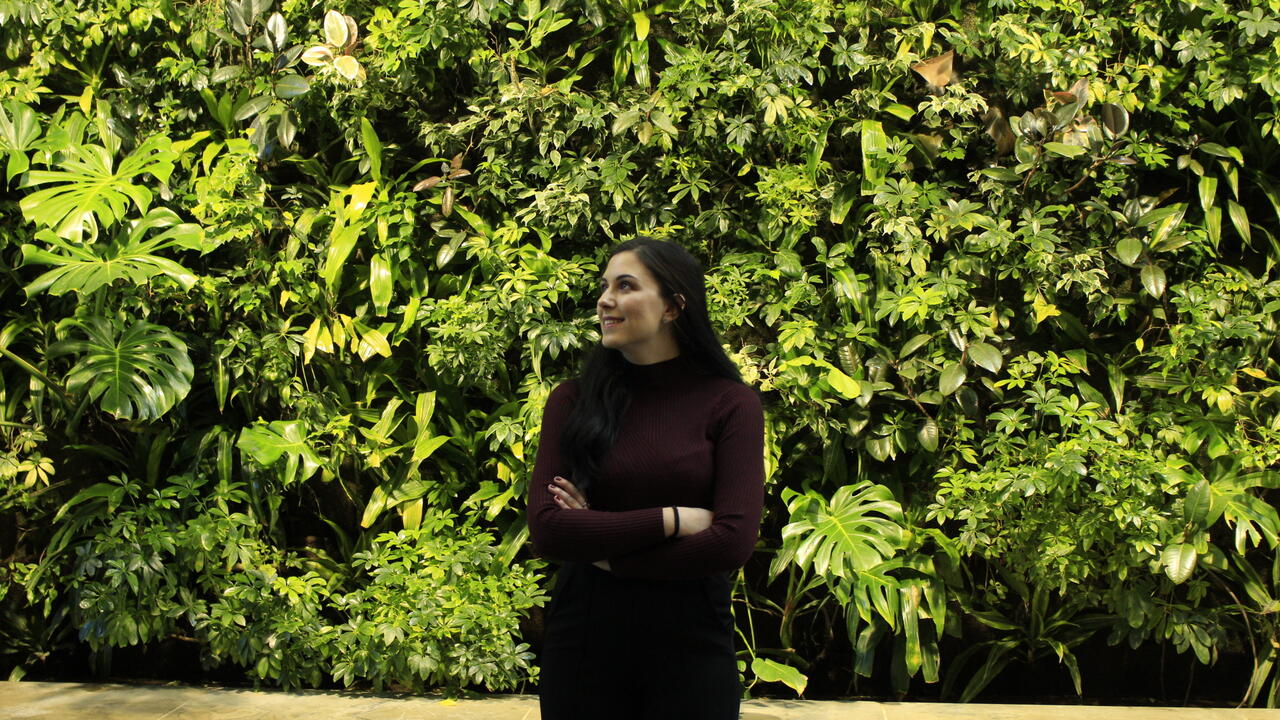
Environment co-op student bringing international sustainability strategies to Waterloo
Calling youth to work with corporations instead of against to improve sustainable practices

Calling youth to work with corporations instead of against to improve sustainable practices
By Taylor Legere University RelationsCo-op student Sandra Biskupovic is applying her knowledge of environment to help change corporate sustainability for the better.
“I’m not going to chain myself to a building and tell corporations to stop being unsustainable, I’m going to provide feedback and work for the company to try to change their behaviour,” said Sandra Biskupovic, environment and business undergraduate.
From her first co-op working with BlackBerry on their carbon disclosure project to her experience as sustainability intern at PepsiCo, Biskupovic has already made strides in improving corporate sustainability practices.
Her next co-op will bring her to Sobeys to work on their food waste reduction project to improve food security. She hopes to continue working in corporate sustainability post-graduation.
“People forget how important the business industry is to climate change issues,” said Biskupovic. “If we can change the behaviour of people within corporations I think that could make a huge impact on how we progress on our goals.”
One concern that Biskupovic has is the lack of youth involvement in working with corporations to build more environmentally friendly practices. This became increasing evident to her as she was one of the only young females in the room for the industry focused events at the 2017 United Nations Climate Change Conference in Bonn, Germany (COP23).
“I was disappointed because I see so many environmentalists complaining about how businesses and industries impact the environment but they aren’t taking any action to do anything about it,” she said. “I think there needs to be more positive youth involvement in these issues instead of playing the blame game and being negative.”
As one of the first student representatives on the city of Waterloo sustainability advisory committee, Biskupovic is also looking for ways to make the community more sustainable with a focus on policy development that aligns with business needs.
“One of the reasons I went to COP was to learn what different regions are doing to adapt to and mitigate climate change and then recommend those things to the council and our region to help progress on our goals,” said Biskupovic. “So that’s what I was most excited for – to meet different people from around the world to hear their perspectives and advice and then bring it back here.”
Just a couple recommendations she has for Waterloo are to have businesses create science based reduction targets and to put in place more severe penalties for buildings that don’t meet the minimum green building and energy efficiency standards.
“We aren’t going to get rid of businesses – they are integral to our economy. We need to find a way to meet in the middle and adapt to sustainability instead of excluding them from the conversation. There is no getting around it – we have to face it head on.” said Biskupovic.

Read more
Waterloo co-op student applies engineering and tech skills at Caivan to support purpose-built housing and build land-development expertise

Read more
A Waterloo couple reflects on the campus that shaped their careers, their values, and their love story

Read more
Reka Somogyi receives the Environment Student-Athlete Award in recognition of excelling in sport and studies
The University of Waterloo acknowledges that much of our work takes place on the traditional territory of the Neutral, Anishinaabeg, and Haudenosaunee peoples. Our main campus is situated on the Haldimand Tract, the land granted to the Six Nations that includes six miles on each side of the Grand River. Our active work toward reconciliation takes place across our campuses through research, learning, teaching, and community building, and is co-ordinated within the Office of Indigenous Relations.